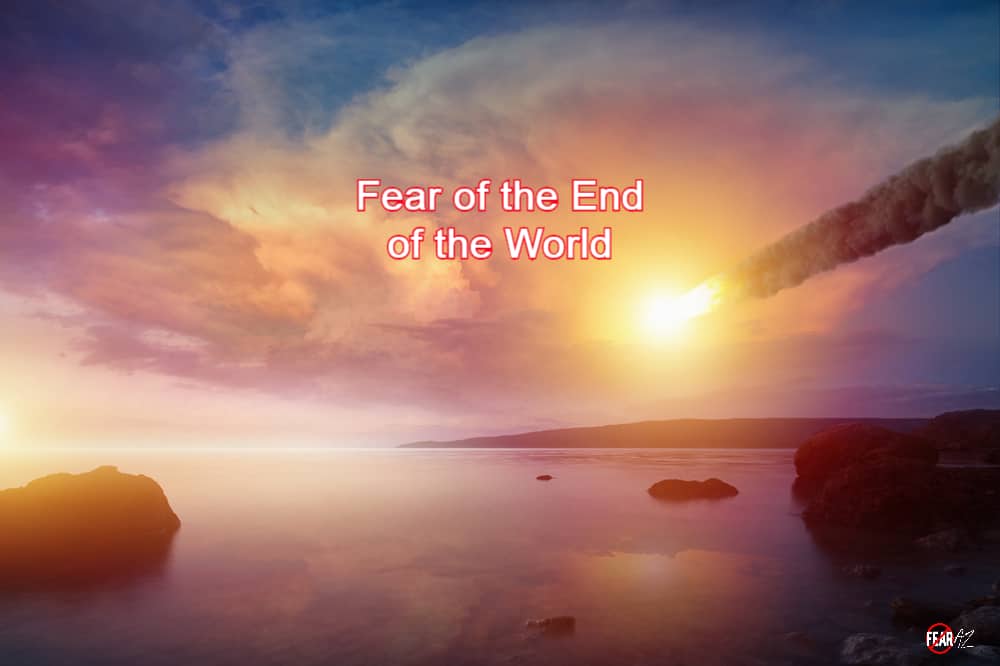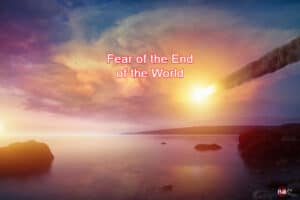Share This Article
The End of the World: Common Fear for Most, Phobia for Others
Several years after their release, you still haven’t watched popular movies like The Day After Tomorrow, I am Legend, or 2012. In fact, you make it a point to skip all doomsday movies or even watch their trailers.
Do you also get anxious when you hear about passages from the Book of Revelations or anything related to supernatural phenomena, pandemics, ecological collapse, or the possibility of a zombie invasion like The Walking Dead?
While these are all scary possibilities, most of us know they are improbable. But if the hypothetical possibility of the world ending sends you into a state of panic and overwhelming anxiety, you may be suffering from apocalypse anxiety, or a fear of the end of the world.
This can be a crippling fear that may cause you to withdraw from your community and stop living life to the fullest. People around you may feel you’re a pessimist or are too gullible or exaggerating your fears, which can make it difficult to share your thoughts with someone.
However, once you acknowledge your phobia, you can find ways to deal with it and even overcome it completely. Let’s take a closer look at what this fear of the end of the world involves and how you can address it.
Fear of the End of the World Meaning
The fear of the end of the world belongs to the doomsday list of phobias. This broad classification also includes fear of plagues, fear of Armageddon, fear of death or thanatophobia, fear of nuclear destruction, and fear of a nuclear holocaust.
The idea of a worldwide catastrophe can send one into a spiral of anxiety and panic, making them want to avoid exposure to these ideas.
So, people who suffer from extreme apocalypse anxiety would often avoid watching anything related to the portrayal of the end of the world. They would avoid conversations about the end of the world or any form of global disaster.
Causes of Fear of the End of the World
Like most fears, this specific phobia doesn’t have a precise origin. Several factors can come together to result in this phobia.
Exposure to wild conspiracy theories, movies, books, and other interpretations of how the world will end all contribute to why a person can have this phobia.
End-of-the-world scenarios, whether biblical or fictional, often include death, suffering, and devastation. And if a young person is exposed to this information, it can be traumatizing to them.
People who have started questioning their faith may also find the end of the world something to fear and will avoid the topic. Being in an environment where people believe that the end of the world is a form of punishment or a way to filter the good from the bad can also drive one to develop an extreme fear of the “end times.”
The fear of the end of the world can also result from how the media portrays this inevitable event. Many people readily believe what they see on social media and other communication outlets, which can cause panic and hysteria.
Someone with a history of mental health problems, such as anxiety, is also at a higher risk of developing this fear.
Symptoms of Fear of the End of the World
Each person suffering from this fear will experience different symptoms depending on the severity of their phobia. There may be multiple symptoms experienced at once or only one at a time.
Here are the most common symptoms people with apocalypse anxiety experience:
Physical Symptoms
- Cold sweat
- Dry mouth
- Fainting
- Increased heart rate
- Gastrointestinal distress
- Nausea
- Shaking
- Shortness of breath
- Tightness in the chest
- Vomiting
Mental/Emotional Symptoms
- Panic attack
- Illogical thoughts about getting hurt and dying
- Irrational thoughts of losing control
- Withdrawal from society
Fear of the End of the World Treatment
Like many other phobias, various treatment options are available to overcome the fear of the end of the world. Seeking professional treatment and practicing self-help techniques are the two main ways to address this phobia.
Self-Help Options
The first step to overcoming any phobia is to understand exactly what you are dealing with. Acknowledging your fear will push you to better understand it and then try to overcome it.
Writing in a journal can help you better understand your fear and recognize irrational thought patterns. Ask yourself, “If the end of the world will indeed happen, how does worrying about it now help you?” or “What made you believe that the end of the world will happen? Is the resource reliable?”
Answering such questions honestly will allow you to start identifying and responding to your triggers better.
You can also practice relaxation techniques to deal with your fear triggers. Learning yoga, meditation, and rhythmic breathing or engaging in regular physical activities can also help build a more stable frame of mind.
Professional Help
Seeking the help of a medical professional, such as mental health professional, will give you a more structured approach to treating your phobia. You may start by discussing your fears to determine the possible causes, triggers, and how this phobia impacts your life.
Your therapist will then develop a treatment plan that will equip you with the necessary tools to overcome this fear.
They may also recommend a particular therapy or therapies. They may prescribe medication if needed.
Some of the standard therapies effective for fears like apocalypse anxiety are:
- Cognitive behavioral therapy
- Exposure therapy
- Talk therapy
Living with the Fear of the End of the World
People dealing with this fear can often lose their will to live because of the mindset that doomsday is just around the corner. But that’s not the case at all.
The world has been dying one way or another for thousands of years, be it through global warming or health pandemics. But you are still alive. And obsessing over the end of the world will be of no help to you.
Opt for professional treatment and stick with it. You can also reach out to friends and family or join support groups where you can express yourself freely without fear of being judged.
It won’t be an overnight process, but with the proper mindset and commitment to get better, you might soon start looking forward to tomorrow without fear.
Conclusion
The idea of the world ending can be terrifying. But it doesn’t have to stop you from living your life. Make sure you surround yourself with a strong support system of friends, family, or support groups and seek professional treatment. With time, you will soon overcome this phobia and live for the many tomorrows to come!




